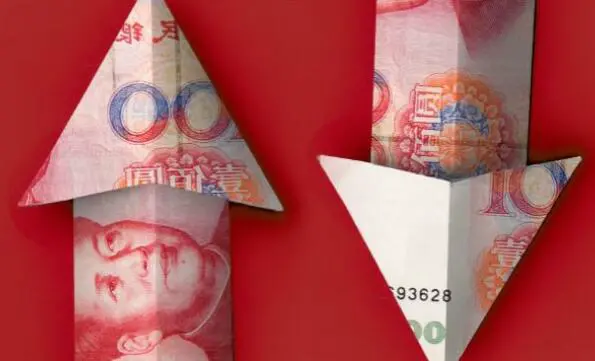The People’s Bank of China (PBOC), or the central bank, conducted more than 100 billion yuan of reverse repurchase agreements (repo) at the open market yesterday, a process in which the central bank purchases securities from banks with an agreement to resell them in the future, so as to deal with the short-term fluctuation in capital supply at the end of the month.
The PBOC conducted 120 billion yuan of seven-day reverse repo on May 31, increasing by more than 80 percent when compared with that in the previous trading day. This eased the capital strains on Monday. Insiders point out that the PBOC has drained money from the market in May; therefore, it cannot be neglected that capital supply will be faced with seasonal pressure in June. It is expected that the central bank will adopt various tools to inject money moderately into the market.
Above RMB100 bln withdrawn from open market in May
The last time that the central bank conducted the reverse repo worth above 100 billion yuan was on May 5 and afterwards the amount of each reverse repo was less than 100 billion yuan. But the central bank suddenly injected 120 billion yuan through reverse repo yesterday, which was priced to yield 2.25 percent. By now, 155 billion yuan of capital was withdrawn from the open market in May.
The central bank suddenly increased the capital injection into the market yesterday, indicating that it thought the market needed more capital injection in a short term at the end of the month. But in terms of the concept of liquidity management by the central bank in May, it commanded different timings to input money into the market to realize moderate control.
While the capital supply was relatively stable in early May, the central bank withdrew money for two consecutive weeks. After that, amid money strain resulting from tax payment and maturity of MLF in mid-May, it injected a small amount of money into the market for two consecutive weeks and extended the MLF in advance, which effectively relaxed market tension.
It is noteworthy that although the market worried that the final settlement of corporate income tax for 2015 in late May might exert great impact on short-term liquidity, its influence on short-term liquidity was weaker than expected according to actual situation. This indicated that the market liquidity is quite affluent at present and also made institutions more confident in capital supply.
The central bank conducted the reverse repo worth 120 billion yesterday, but in view of 65 billion matured on the day, it only injected 55 billion into the market yesterday. As disclosed by traders, influenced by the single-day net injection, the currency market stayed loose, relaxing the tight liquidity in the afternoon of Monday.
Expectation on liquidity becomes more prudent in June
Though capital supply is unperturbed now, past experience shows that seasonal fluctuation of capital supply is possible in June. What worry institutions the most is that capital supply faces great pressure this year as a result of multiple factors. Industry insider points out that impacted by a slew of factors like the coming Dragon Boat Festival in early June, rising expectation on interest rates hike by the Federal Reserve (Fed) and Macro Prudetiao Assessment (MPA) system, institutions will be more careful with expectation on capital supply later.
MPA, started by the central bank from 2016, is an upgraded version of previous differentiated reserve fund dynamic adjustment and consensus loan management mechanism. As the first time point for the implementation of MPA, the end of the first quarter brought certain impact to short-term capital supply and non-banking institutions faced even greater pressure on capital. Market participants note that financial institutions will be faced with another MPA in the end of June. It is expected that institutions will actively get prepared for it in June due to previous lessons.
The fixed income team of the Minsheng Securities Research Institute points out that whenever MPA comes, commercial banks have to limit capital lending to non-banking institutions due to the assessment pressure of broad credit. In the meantime, non-banking institutions should match up with the high cost of debt and have to maintain yield rate by increasing leverage. Once liquidity tightens up, non-banking institutions will be nagged by the short supply of capitals.
Added that the expectation on interest rates hike by the Fed rises, and that the worries about depreciation of RMB exchange rate and the worsening pressure brought by capital outflow back in focus. Under such circumstances, market participant expect that the central bank will continue the application of multiple instruments like Medium Term Lending Facility (MLF) and pledged supplementary lending (PSL) to maintain reasonable supply of liquidity.
But the fixed income team of China International Capital Corporation Limited (CICC) expects that early June will not see tight capital supply, but banks should get prepared for the MPA in the end of the first half which will be conducted in latter half of June. All banks will prepare the required capitals in advance and the final impact brought to the market might be not as big as expected by the market.
(APD/XH FINANCE)
 简体中文
简体中文

